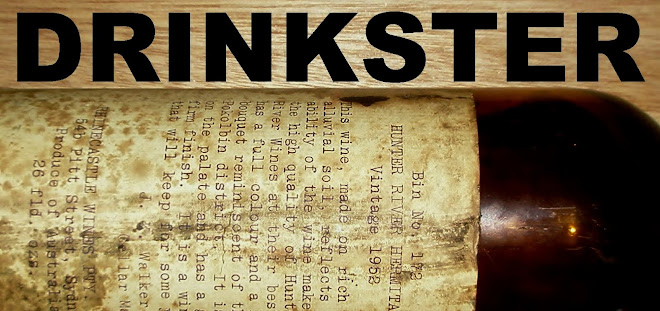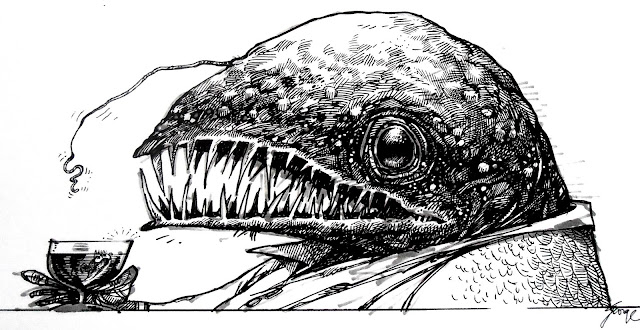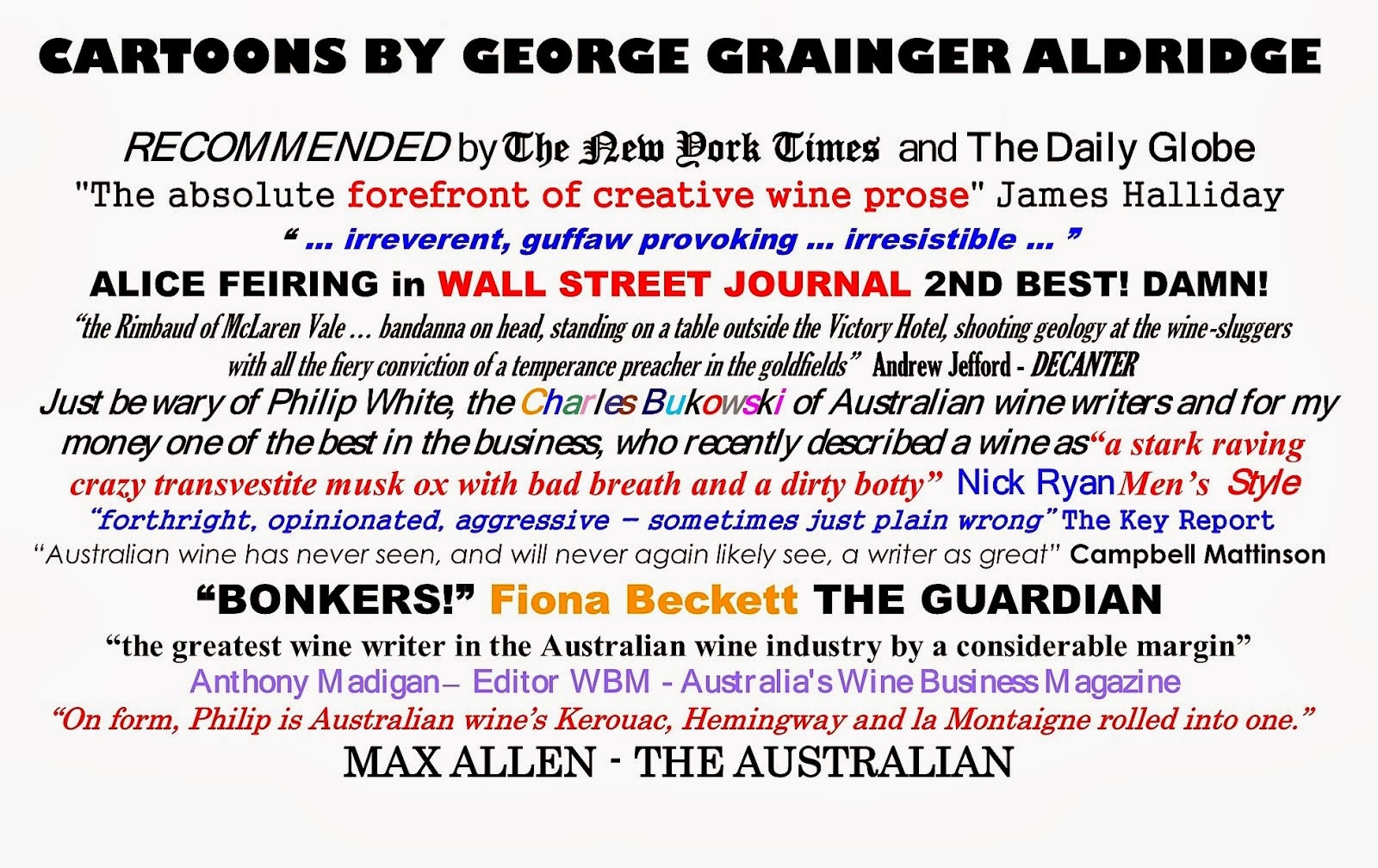 Uni Betrays Vineyard Students
Uni Betrays Vineyard StudentsLabor Twerps Plot More Slums
New Threat At Top Research Site
by PHILIP WHITE
FOR ALL his feverish strivings to make Adelaide look smarter, and all the millions he’s thrown at encouraging new universities to move here, Premier Mike Rann (below) just happens to be leaving office as the once-great Adelaide University takes a sickening dive in The Times World University rankings – down from 73 last year to the lumpen scrum between 201 and 225.
 The guide offers few specifics once you're in the mud below 200.
The guide offers few specifics once you're in the mud below 200.This coincides with the University advertising for a Head of the School of Agriculture, Food and Wine at the Waite Campus. This School shares a fabulous new building with the Australian Wine Research Institute. Its role is “to generate new knowledge and create innovative solutions for the changing needs of the agri-food-wine industries, and to foster the development of scientific talent and motivated personnel to underpin Australia's rural industries.
“The School is committed to connecting scientific excellence with relevance,” the advertisement continues. “There has been a strong emphasis on efficient and sustainable production of plant and animal products, which is reflected in the School's international reputation for excellence. In addition, there is now a new focus on the end use of agricultural products, with special emphasis being placed on food and nutrition.”
The new professor will steer research in Farming Systems, Food and Nutrition Science, Plant Breeding and Genetics, Plant Physiology, Viticulture and Horticulture, Plant Protection, Soil Science, and Wine Science and Business.
 JOHN RAU photo PHILIP WHITE
JOHN RAU photo PHILIP WHITEThis lobs in my tray along with ongoing noise surrounding the University’s determination to subdivide Glenthorne Farm, the former CSIRO research station at the Top O’Taps.
In 2008 the University first announced its plan to subdivide for housing 63ha of the 208ha Glenthorne Farm, on O’Halloran Hill. Before his resignation as Minister of Planning, Paul Holloway finally formally refused the University’s persistent requests to have him permit this lucrative sub-division.
His replacement, John Rau, has now released new planning boundaries to protect the McLaren Vale vignoble from further housing. This new boundary treacherously excludes Glenthorne Farm, while the University continues its back-room plotting, casting around the wine industry councils and key individuals for support in its sub-division plan.
Rau is, for now, Deputy Premier, Attorney-General, Minister for Justice, Minister for Urban Development, Planning and the City of Adelaide, Minister for Tourism and Minister for Food Marketing.
Because of the arcane and crook way the backroom Labor factions work, he was permitted to choose his own portfolios upon his promotion to Deputy Premier.
In the late ’nineties Wirra Wirra owner Greg Trott was instrumental in having the CSIRO, which was tempted to subdivide the farm for a motza, instead hand it back to the Commonwealth, which passed it in turn to the South Australian government, which in turn handed it to the University for precisely the types of research the new Professor of Agriculture, Food and Wine will be expected to conduct.
 GREG TROTT photo PHILIP WHITE
GREG TROTT photo PHILIP WHITEIn return for the beautiful rolling farmland, the University signed and sealed a solemn deed confirming “The CSIRO has only agreed to sell the Land on the proviso that the Land will be preserved and conserved for agriculture and other related activities and will not be used for urban development … The University, as the person nominated by the State, has agreed to purchase the Land from the CSIRO , to preserve and conserve the Land for other related activities and not use, develop or permit the Land to be used or developed for urban development.”
Under its obligations in the deed, the University agreed to the following:
“4.1 The University covenants with the Minister that it will, subject to obtaining all necessary statutory approvals, do all reasonably necessary things to ensure that the Land is
“4.1.1 preserved, conserved and used for Agriculture, Horticulture, Oenology, Viticulture, Buffer Zones and as Community Recreation Area, and
“4.1.2 is available for Project Research Activities, University Research Activities, Education Activities and operating a Wine Making Facility.”
The implication of the pledges made in clause 4 are perhaps even more telling:
“4.2 The University covenants with the Minister that it will not at any time hereafter:
“4.2.1 use or permit the Land to be used other than as provided for in subclause
“4.1 unless such other use is approved in writing by a Minister acting as agent of the Crown,
“4.2.2 undertake or permit Development or seek to undertake Development of the Land for uses other than those specified in subclause 4.1 unless such other use or Development (excluding Urban Development which will not be approved) is approved in writing by a Minister acting as agent of the Crown.”
 I don’t need several degrees in conveyancing to understand how many hundreds of millions of dollars are at stake, nor to suspect that the University has consistently breached clause 4.2.2..
I don’t need several degrees in conveyancing to understand how many hundreds of millions of dollars are at stake, nor to suspect that the University has consistently breached clause 4.2.2..It will be fascinating watching the new aggressively pro-development Planning Minister Rau squirm through his forthcoming decisions. As Minister for Food Marketing, he should expect to be working fluently with the new Professor in fulfilling all the promises you have just read above. As Attorney-General, he will be responsible for leading the Planning Minister through the legal minefield surrounding the little matter of the government releasing the University from the Deed. Or NOT. And as Minister for Justice, he should have the exactitude and determination to order the University to pull its finger out and get on with the research it promised in the first place – Bacchus knows, we need it!
Trott’s determination in seeing this deal struck came as Brian Croser, deputy chancellor of the University for the eight years to 2007, determinedly closed the old Roseworthy Agricultural College winemaking and viticulture school to have them moved to the University’s Waite Campus, where there was no room for proper practical vineyard research.
Having virtually set up his own winemaking school in the irrigated riverlands at Riverina College in the 1970s, Croser hated Roseworthy's ageing staff and aged winemaking philosophies. He seemed simply determined, from very early on, to replace it with Croserism.
Which he did.
Because the idea was not Croser's, the transfer of Glenthorne to the Adelaide University appeared to have little chance to many who knew him well, appreciating the force of his ego and whatever he imagined his history and destiny to be.
But instrumental, no, critical in the deal, was Federal Minister for Environment, Robert Hill, who pulled it all together. While Croser had been busy entertaining the hard right - Foreign Minister Alexander Downer and his gang - at his Petaluma Bridgewater Mill, Hill appeared far too logical, cool, humane and sensitive to the lot of them. But he pushed the deal through, and then went on to become, for several years, Australia's Ambassador to the United Nations.
 To help pay for the initial research on Glenthorne, and get some vineyard rolling there, Trott made another deal with Stephen Millar (left), CEO of BRL-Hardy, who hand-balled the problem to his chief winemaker, Peter Dawson. Given the new push for lower-alcohol wines, coincident with the rising popularity of Italian wine, Dawson immediately wanted to plant a quick vineyard of white frontiganc, the grape used for the slightly fizzy 6-8% alcohol Moscato d’Asti wines in Italy. As this wine would need no bottle maturation, it could be on the market within a few years of planting, ensuring a quick return for the University, and a neat solution to BRL-Hardy’s yearning for more “fronti”, which is now in desperate shortage right across Australia.
To help pay for the initial research on Glenthorne, and get some vineyard rolling there, Trott made another deal with Stephen Millar (left), CEO of BRL-Hardy, who hand-balled the problem to his chief winemaker, Peter Dawson. Given the new push for lower-alcohol wines, coincident with the rising popularity of Italian wine, Dawson immediately wanted to plant a quick vineyard of white frontiganc, the grape used for the slightly fizzy 6-8% alcohol Moscato d’Asti wines in Italy. As this wine would need no bottle maturation, it could be on the market within a few years of planting, ensuring a quick return for the University, and a neat solution to BRL-Hardy’s yearning for more “fronti”, which is now in desperate shortage right across Australia. AUSTRALIAN WINE RESEARCH INSTITUTE CHAIRMAN, FORMER BRL-HARDY CHIEF WINEMAKER PETER DAWSON, RIGHT, WITH, THE AUTHOR AND OTHER ACTIVISTS AT THE TRACTOR ACTION DEMO TO SAVE SEAFORD HEIGHTS FROM THE LABOR GOVERNMENT'S SICKO URGE TO SUBDIVIDE INVALUABLE FARMLAND photo LEO DAVIS
AUSTRALIAN WINE RESEARCH INSTITUTE CHAIRMAN, FORMER BRL-HARDY CHIEF WINEMAKER PETER DAWSON, RIGHT, WITH, THE AUTHOR AND OTHER ACTIVISTS AT THE TRACTOR ACTION DEMO TO SAVE SEAFORD HEIGHTS FROM THE LABOR GOVERNMENT'S SICKO URGE TO SUBDIVIDE INVALUABLE FARMLAND photo LEO DAVISIn December 2008 I asked Dawson about his recollections of this.
“We realised of course that Glenthorne was not in any way a cool climate site”, he said, “but it was a great location for white Fronti, and other premium-level research. Croser wouldn’t have it. He wanted Chardonnay. We didn’t want Chardonnay. So, using the implications of the radioactive sheep on the land, the University withdrew from the deal.”
The radioactive sheep, which had been sequestered there for research and eventual burial after being irradiated during the Maralinga Tests fifty years ago, were presumably bad for Fronti, but would have been cool beneath 1,000 new homes full of humans, and perfectly okay with Croser’s beloved Chardonnay, which BRL-Hardy knew would not suit the site, and was already in oversupply.
It’s nearly impossible to sell McLaren Vale Chardonnay.
The University was terribly embittered when Holloway knocked back its lucrative, brazen, and, given the Deed, illegal subdivision. Since then, Croser’s gone, BRL-Hardy’s gone, Robert Hill has become the Chancellor of the University, and Peter Dawson is chairman of the Wine Research Institute, which will soon share that flash headquarters with the new Professor of Agriculture, Food and Wine.
When the federal government scraps the Wine Equalisation Tax and replaces it with the much more efficient, logical, and honest excise that’s being called for by everyone from Fosters through Pernod Ricard to the health lobby and the outright wowsers, the extra money it makes should be split fairly three ways.
One tranche of funding should go to the rehabilitation of the communities ravaged by cheap sweet plonk. For example: Alice Springs.
Another should go to the rehabilitation of the unsustainable grape-growing communities ravaged by the collapse of the cheap plonk business in the Murray-Darling Basin. For example: Griffith.
And the rest should go to ensuring the University of Adelaide finally conforms, after a decade of utterly wasteful plotting and scheming, to the clauses of the Deed to which it solemnly attached its seal and signatures on 24th May 2001.
Given the brutality of climate change, the death of the big rivers as we knew them, the collapse of the old model petrochem regime wine industry, and the keen yearning for healthy new flavours in the market, Bacchus only knows how much we’ve missed in the decade of research that didn’t happen.
Come in, Professor! Begone, Rann. Roll up the new guns, Premier Weatherill!
 STORM CLOUDS OVER THE BEAUTIFUL, ESSENTIAL, INVALUABLE RESEARCH GROUNDS OF GLENTHORNE FARM, SURROUNDED BY DORMITORY SUBURBS, TUPPERWARE TUSCANY, VILLA RASH AND BRAND NEW GHETTOS ... BUGGER THEM! photo LEO DAVIS
STORM CLOUDS OVER THE BEAUTIFUL, ESSENTIAL, INVALUABLE RESEARCH GROUNDS OF GLENTHORNE FARM, SURROUNDED BY DORMITORY SUBURBS, TUPPERWARE TUSCANY, VILLA RASH AND BRAND NEW GHETTOS ... BUGGER THEM! photo LEO DAVIS.













2 comments:
Stephen Millar looks like he's about to throw that wine in his own face. Do winemakers ever have a drink?
Having weathered one Glenthorne storm, and with the current atmosphere strongly against poorly thought out development in the Vale, the Hills and surrounds, there is a surge in the feeling that we all want to protect this great region. After the Seaford Heights debacle, I only hope the University, of which I am a student, and the Government both know what they will be getting themselves into should they try to push this through yet again. A man's word is his bond - never go back on your word. In a time where such organisations should be trying to regain credibility and trust, following such a simple ethos would go a long way. How hard can it be?
Post a Comment